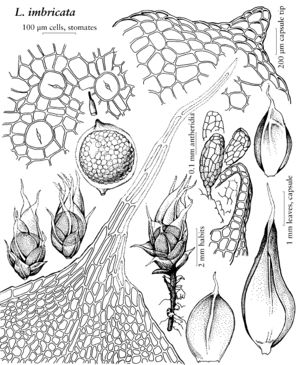Lorentziella
Linnaea 42: 229. 1879 ,.
| Taxon | Illustrator ⠉ | |
|---|---|---|
 | Lorentziella imbricata | Patricia M. Eckel |
Leaves imbricate distally, concave, broadly ovate to elliptic, abruptly narrowed to a long awn; costa narrow, extending to base of awn. Capsule immersed to slightly emergent, base truncate, operculum not differentiated.
Distribution
United States, s South America
Discussion
Species 1 or 2 (1 in the flora).
Lorentziella is a genus of minute, ephemeral mosses comprising one, or at most two, species. The perennial, subterranean stem or rhizome system gives rise to upright, above-ground plants in late fall–early winter. Above-ground plants are produced in abundance during mild, wet winters but less commonly when conditions are dry. The broadly concave leaves completely surround the globose, cleistocarpous capsules of immersed sporophytes. The glaucous, blue-green color of the above-ground plants is reminiscent of Bryum argenteum while their cabbage shape resembles a small Funaria gametophyte prior to elongation of seta.